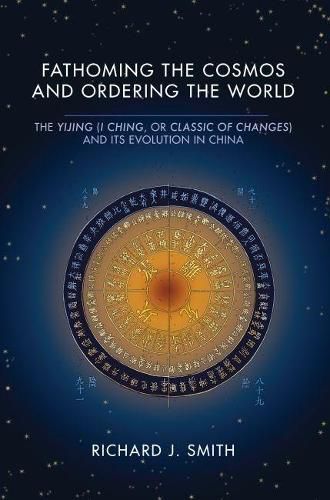Readings Newsletter
Become a Readings Member to make your shopping experience even easier.
Sign in or sign up for free!
You’re not far away from qualifying for FREE standard shipping within Australia
You’ve qualified for FREE standard shipping within Australia
The cart is loading…






This title is printed to order. This book may have been self-published. If so, we cannot guarantee the quality of the content. In the main most books will have gone through the editing process however some may not. We therefore suggest that you be aware of this before ordering this book. If in doubt check either the author or publisher’s details as we are unable to accept any returns unless they are faulty. Please contact us if you have any questions.
Fathoming the Cosmos and Ordering the World is the first full-length study in any Western language of the development of the Yijing in China from earliest times to the present. Drawing on the most recent scholarship in both Asian and Western languages, Richard J. Smith offers a fresh perspective on virtually every aspect of Yijing theory and practice for some three thousand years. Smith introduces the reader to the major works, debates, and schools of interpretation surrounding this ancient text, and he shows not only how the Book of Changes was used in China as a book of divination but also how it served as a source of philosophical, psychological, literary, and artistic inspiration.
Among its major contributions, this study reveals with many vivid examples the richness, diversity, vitality, and complexity of traditional Chinese thought. In the process, it deconstructs a number of time-honored interpretive binaries that have adversely affected our understanding of the Yijing-most notably the sharp distinction between the
school of images and numbers
(xiangshu) and the
school of meanings and principles
(yili). The book also demonstrates that, contrary to prevailing opinion among Western scholars, the rise of
evidential research
(kaozheng xue) in late imperial China did not necessarily mean the decline of Chinese cosmology. Smith’s study reveals a far more nuanced intellectual outlook on the part of even the most dedicated kaozheng scholars, as well as the remarkable persistence of Chinese
correlative
thinking to this very day. Finally, by exploring the fascinating modern history of the Yijing, Fathoming the Cosmos and Ordering the World attests to the tenacity, flexibility, and continuing relevance of this most remarkable Chinese classic.
$9.00 standard shipping within Australia
FREE standard shipping within Australia for orders over $100.00
Express & International shipping calculated at checkout
This title is printed to order. This book may have been self-published. If so, we cannot guarantee the quality of the content. In the main most books will have gone through the editing process however some may not. We therefore suggest that you be aware of this before ordering this book. If in doubt check either the author or publisher’s details as we are unable to accept any returns unless they are faulty. Please contact us if you have any questions.
Fathoming the Cosmos and Ordering the World is the first full-length study in any Western language of the development of the Yijing in China from earliest times to the present. Drawing on the most recent scholarship in both Asian and Western languages, Richard J. Smith offers a fresh perspective on virtually every aspect of Yijing theory and practice for some three thousand years. Smith introduces the reader to the major works, debates, and schools of interpretation surrounding this ancient text, and he shows not only how the Book of Changes was used in China as a book of divination but also how it served as a source of philosophical, psychological, literary, and artistic inspiration.
Among its major contributions, this study reveals with many vivid examples the richness, diversity, vitality, and complexity of traditional Chinese thought. In the process, it deconstructs a number of time-honored interpretive binaries that have adversely affected our understanding of the Yijing-most notably the sharp distinction between the
school of images and numbers
(xiangshu) and the
school of meanings and principles
(yili). The book also demonstrates that, contrary to prevailing opinion among Western scholars, the rise of
evidential research
(kaozheng xue) in late imperial China did not necessarily mean the decline of Chinese cosmology. Smith’s study reveals a far more nuanced intellectual outlook on the part of even the most dedicated kaozheng scholars, as well as the remarkable persistence of Chinese
correlative
thinking to this very day. Finally, by exploring the fascinating modern history of the Yijing, Fathoming the Cosmos and Ordering the World attests to the tenacity, flexibility, and continuing relevance of this most remarkable Chinese classic.